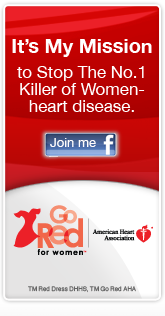I now take 12 pills a day. Me, the self-righteous riot grrl who demanded to see the results of studies of this drug or that drug on women and then refused to take them when the doctor admitted there was no such thing. Me, the nervous first-time mother who wouldn’t even take fish oil supplements while pregnant. Me, the healthy eating, marathon running, 37-year-old woman. Twelve. Per. Day.
There’s the aspirin, metropolol, and birth control because I had a heart attack. Plavix because I have a stent. Zetia, Niacin, and Crestor for messed-up lipids. Synthroid for hypothyroidism and iron for anemia. And because of all that: Celexa.
Celexa is an antidepressant, in case you didn’t recognize the name from TV commercials or four-page magazine ads. I waited four weeks to start it because my primary doctor wanted to see if I bounced back on my own first. No bouncing here, and I decided to cut myself some slack and insist on the drugs. I have enough going on without expecting to pull myself up from my bootstraps.
I’m told it takes up to four weeks to work, so it is hard to be patient. But then there’s the placebo question: Am I feeling a little better because Celexa is doing its chemical job after just four days, or because I’m so happy to finally be taking it? Who cares. I feel better, and that’s the point.
Depression is a common companion to heart disease and while that’s unsurprising, it was unpleasant to discover that it is dangerous as well. Harvard Medical School reported that half of all heart attack survivors become depressed and the American Heart Association reports that women, and particularly younger women, are at an even higher risk. What’s more, those who do become depressed are at a greater risk of another heart attack.
“Depression that occurs for the first time during recovery from a heart attack appears to be more dangerous than depression that started before the attack,” the Harvard article states. “People with post–heart attack depression are two to three times more likely to have another heart attack or to die prematurely compared with survivors who don’t have depression.”
And, it appears it might be all in my head – in my brain, that is. The journal Psychotherapy and Psychosomatics published a German study that found that persistent depression after a heart attack was associated with vascular changes in the brain, but that “more research is needed to determine whether depression causes these changes or vice versa.”
But here’s the thing: when I can’t sleep or can’t focus or can’t formulate a plan more than an hour in advance, can’t take care of my kids or can’t return a phone call or follow through on dinner, or am somehow in greater danger of another attack, I don’t care anymore about research studies or long-term effects or gender inequality. I just want it to stop.
So I take 12 pills a day. Gladly.
P.S. On to less, ahem, depressing subjects, here are the stats on two cheeses I forgot last time. Goat cheese earns 8 grams of total fat, 6 saturated, putting it in the “Not So Good” column. Fontina is 9 grams total, 5 saturated, placing it in “Pretty Bad for You.” Drat.



Recent Comments